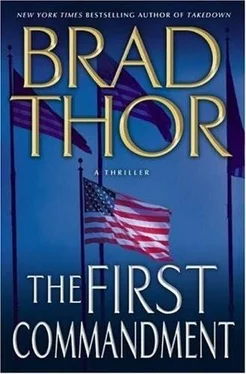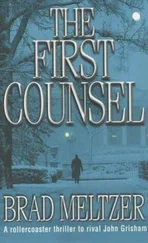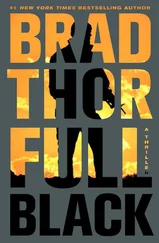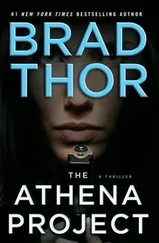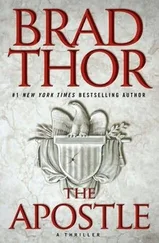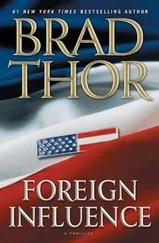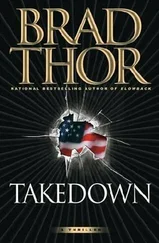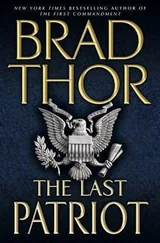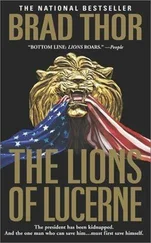Depending upon whether you were a Mexican or a Spanish historian, Querétaro was known as the cradle of Mexican independence or as a hotbed of revolutionary activity. It was in this city that the plot to overthrow the Spanish and push them back to Spain was born. It was also where the peace treaty known as the Treaty of Guadalupe Hidalgo was signed, ending the Mexican-American War and ceding parts of the modern-day U. S. states of Arizona, New Mexico, Colorado, and Wyoming, as well as all of California, Nevada, and Utah. In return, the United States agreed to take over $3.25 million in debts owed by Mexico to American citizens.
With both radical Islamic fundamentalists and a good majority of the Mexican government intent upon bringing down the United States, Querétaro seemed a perfect place for Ronaldo Palmera to call home.
When word came from the Troll of Palmera’s whereabouts, Ron Parker was actually disappointed that he wasn’t holed up in one of the training camps. With all of the ex-Special Operations people on the Elk Mountain payroll, he had hoped they could assemble their own strike team, slip across the border, and take out an entire camp.
Harvath would have liked that too, but grabbing Palmera in Querétaro had some distinct advantages. Foremost among them was that the city was at the crossroads of Mexico and had one of the most dynamic economies in the entire country. This meant that large amounts of American and European capital as well as large numbers of businessmen moved through Querétaro on a regular basis. With their shaved heads, Parker and Finney weren’t exactly going to blend-not the two of them together and especially not Finney. He was so big that he stood out everywhere he went, but Harvath had a good idea of how they could turn that to their advantage.
Operationally, Parker and Finney had enough tactical knowledge and experience to pull off what Harvath wanted to do. What’s more, a three-man team was as big as they dared put together for this operation. As good as the guys from Valhalla and Site Six were, the crew for this kind of assignment was best kept small.
When their jet touched down at Querétaro International Airport, a well-dressed Finney and Parker took up bodyguard positions around an even-better-dressed Harvath.
Once through customs and passport control, Finney and Parker unpacked radios from their bags, affixed them beneath their sport coats, and placed Secret Service-style ear buds into their ears. The policemen guarding the terminal studied their movements, but no more intensely than they did those of any other wealthy foreign businessman who came through the airport. Americans and Europeans were still a thing of both wonder and envy in Querétaro.
Halfway along the main road into the city, Finney instructed Parker to pull off. They followed a poorly paved road for about seven miles into one of the worst Mexican slums any of them had ever seen. Rental car or not, this wasn’t a good place to be driving a shiny, new American luxury four-door.
After doubling back twice, they finally found what they were looking for. As they pulled up in front of the tiny auto parts store with its hand-painted signs and rusted bars across its windows, Finney looked at Parker and said, “Keep it running.”
Climbing out of the car, Finney spotted an old man in a T-shirt and sandals sitting in a lawn chair propped up against the front of the building. When the old man smiled, he showed a row of gold teeth.
Finney approached him and asked a question about the road into Querétaro. When the old man gave him the predetermined response, Finney then asked him if he had a spare tire that would fit their car. The old man raised himself from the wobbly lawn chair and motioned for Finney to follow him inside.
Harvath and Parker watched from the car. This wasn’t part of the agreement, and neither of them liked it, but they had little choice but to sit and wait.
Moments later, Finney re-emerged with what they assumed was their tire wrapped in a large garbage bag. The old man came around the back of the car and knocked twice with his gnarled knuckles on the trunk. Parker depressed the trunk release, and Finney carefully laid the tire inside.
Ten minutes later, they pulled the car off to the side of the road and got out. Popping the trunk, they removed the plastic bag from around the “spare tire.” Duct-taped inside the tire was everything Harvath had asked for. The Troll had charged them dearly for the weapons, but seeing as how they had no sources in Mexico and Harvath couldn’t tap any of his D. C. connections for fear the president would find out what he was up to, they’d had little choice but to agree to buy what they needed from the Troll and his extensive network.
Harvath was glad to have the weapons. If Ronaldo Palmera was as dangerous as everyone said he was, they were going to need them.
Though Palmera could have lived anywhere in Querétaro, he preferred the hardscrabble El Tepe neighborhood where people minded their own business and didn’t ask a lot of questions.
He kept an unassuming two-story house not far from the main market square. In the rear was a patio of sorts where he had planted an extensive garden, the highlight of which was neat rows of dwarf fruit trees.
Gardening was a pastime Palmera had come to late in life and it had become a reliable way to soothe his nerves and take his mind off all he had seen and all he had done.
To represent the five pillars of Islam, he had planted five different types of trees: apple for the testimony of faith; apricot for the ritual of daily prayer; cherry for the obligatory almsgiving; nectarine for fasting, and peach for the pilgrimage to Mecca -a journey Palmera had yet to undertake.
As he tended to each type of tree, he was reminded of his commitment to Allah and focused his mind on what that particular pillar of Islam meant to him. In the midst of an all-too-secular world, Palmera’s garden was his sanctuary, his earthly Paradise. It was also the weakest link in the defense of his home.
Early on, Harvath had abandoned the idea of snatching Palmera off the street-too many witnesses and too many things that could go wrong. Their best chance was to take him at his house.
From what the intel revealed, Palmera lived alone and didn’t travel with any bodyguards-his reputation being all the protection he needed. The one thing that Harvath was worried about, though, was how extensively Palmera had the neighborhood wired. Spreading your money around to local charities, churches, and families in need was a great way to purchase loyalty and eyeballs that would alert you to any indication someone had come looking for you.
In the end, there simply was no way for Harvath and his team to know. Therefore, they had to adopt the attitude that every single person within a four-block radius of Palmera’s house was on his payroll and ready to drop a dime at a moment’s notice. Trying to sneak into the neighborhood was out of the question. They would have to go in bold as brass.
And that’s exactly what they did.
They parked the rental car a block away from Palmera’s house and paid a couple of shopkeepers a hundred bucks apiece to keep an eye on it. Though Finney spoke very little Spanish, it was clear what would happen to the shopkeepers if they returned and something had happened to their vehicle.
He took up his position behind Harvath and Parker and they walked to the corner and turned onto Palmera’s street. Harvath talked animatedly and pointed at different buildings, a roll of blueprints under his arm.
Three-quarters of the way down the block, Harvath spotted the narrow gangway that led to the rear of Palmera’s house, and he stopped. Removing the blueprints from underneath his arm, he unrolled them across the hood of a parked car and appeared to study them intently. Taking a small digital camera from his pocket, he handed it to Parker and ordered him to start taking pictures.
Читать дальше
